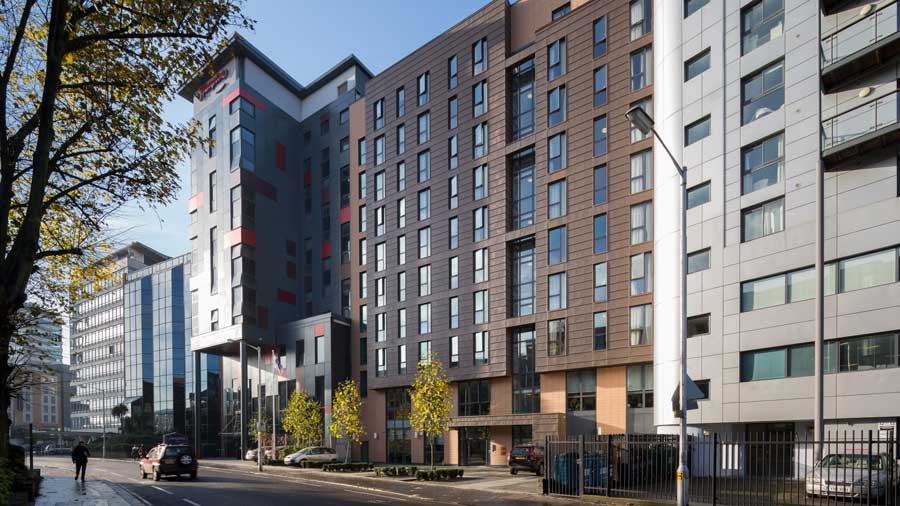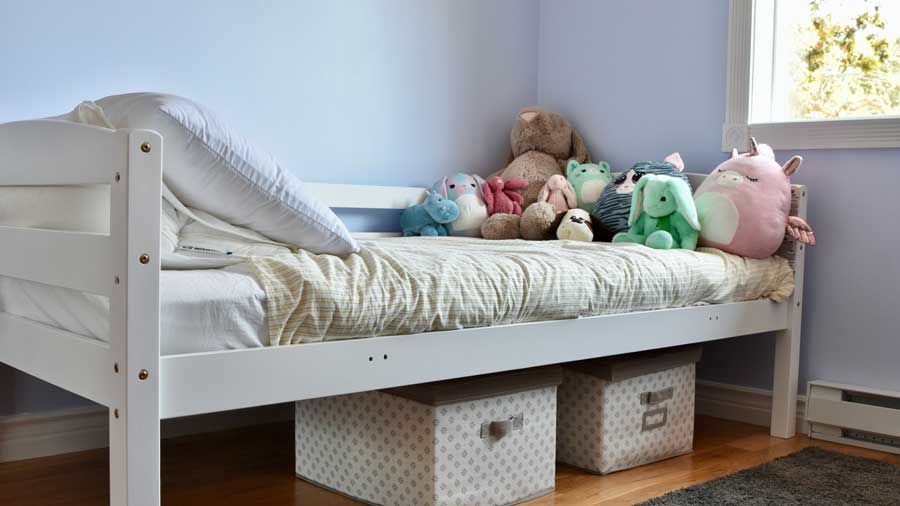Image: Istock
CASE STUDY
Providing dignified solutions to temporary accommodation
How Riverside and Trust for London are working with others to provide more secure and dignified housing solutions for homeless families

GROWTH, REGENERATION & DEVELOPMENT

Leila Barker
[job title, Organisation???]

Xxxxx Xxxxxxxx
xxxxxxxxxxx


Issue 77 | April 2025
The following two case studies were collected through our work so far on the Temporary Accommodation Network (TAN). These showcase two different organisations working to influence the quality of temporary accommodation (TA) being provided, with a particular focus on how the quality of accommodation and support services can make a real impact on the lives of families facing homelessness. Together they illustrate how organisations of varying size, location and purpose can work in partnership to have a positive influence on the TA crisis.
Riverside – a housing-led approach
Riverside is a large, registered social housing provider founded in Liverpool, with a significant presence on Merseyside, including approximately 1,700 homes in Sefton. In 2019, Riverside launched a new scheme with Sefton Borough Council to support families living in temporary accommodation (TA) into more permanent homes.
Informed by learning from Housing First, the scheme seeks to offer two or three-bedroom furnished family homes to households in TA with a history of failed tenancies, as well as strengths-based, person-centred support to end the cycle of homelessness, empowering them to independence.
Families with children of all ages living in the properties receive support at least weekly from Riverside’s Specialist Support Worker to help them sustain their tenancy and other support needs they may have, for example with benefits, debt, rent arrears, health, domestic abuse, hate crime, anti social behaviour, and getting back into work or education and training.
Crucially, a housing-led approach means that the home someone is given is not conditional on the way in which they engage with support. It is a secure and stable base where support workers help a formerly homeless person, and their family, rebuild their lives.
Initially offered a supported, protected licence, families eventually transition to a regular social housing tenancy with Riverside after 12 months, in the same property. This helps to break the cycle of constantly moving and provides motivation to build long-term relationships rather than living with the worry that they will be moved elsewhere.
The scheme’s coordinated approach has meant more efficient use of the council and its partner services. By bringing housing and homelessness together, it has been calculated that the pilot generated a saving of £24,394 per family, per annum – £3.36 of benefit for every £1 spent. The service was recommissioned in 2024, delivering nine homes per year, for the next five years.
“By bringing housing and homelessness together, it has been calculated that the pilot generated a saving of £24,394 per family, per annum – £3.36 of benefit for every £1 spent.”
More information about the Sefton Families service, including testimonials from one of its residents, the council leader, and those working on the scheme, is available through this short video.
Trust for London – Standards and 5 Basics campaign
Trust for London is one of London's largest charitable funders. Its Standards and 5 Basics Campaign seeks to improve life in TA by partnering with others to push for improved standards across London and work to improve five basic amenities in TA. The core ask is for councils to stop putting people into TA that is in poor condition, not accessible or safe, and located away from community and support networks.
The ‘5 Basics’ are presented as measures that can help improve daily life in accommodation that is otherwise habitable. These are as follows:
- Cooking facilities in all TA, including a fridge to store food. Functional kitchens allow residents to live with dignity and make healthy choices about food. Private cooking facilities can cut down on the additional costs of TA, allowing people to look after themselves and protect their children’s development.
- Information that is clear, consistent and accurate to be provided to people when they move into TA with regular updates about how they will move on to settled accommodation. This should be delivered while acknowledging potential digital exclusion, literacy, language and disability needs. When people have clear and consistent information, they can make decisions based on a better understanding of the process and be more equipped to address problems.
- Wifi access that meets the needs of the whole household. When people have better access to WiFi, they can save on additional costs of internet access in TA, be better able to manage online benefit and housing processes, be in a stronger position to find work, and ensure their children’s education and life chances are not impacted.
- Laundry facilities to be provided in all properties being used for TA, including a washing machine and either a dryer, or somewhere to dry laundry that has suitable ventilation. When people have proper laundry facilities they can save on the additional costs of TA, better look after themselves and reduce additional laundry pressures associated with young children or medical issues.
- Storage facilities to be provided for all people going into TA. This reduces the cost of storage elsewhere, often for lengthy and unspecified times. Residents will also keep hold of personal belongings and be able to keep bulkier items, such as prams and bikes, stored safely.
Resources are in development to expand on the requirements including specific policy suggestions, and examples of good practice which councils can learn from. The campaign has grown out of Trust for London’s Better Temporary Accommodation Initiative. For more information about the campaign and the initiative please email info@trustforlongon.org.uk, for the attention of Susie Dye.

